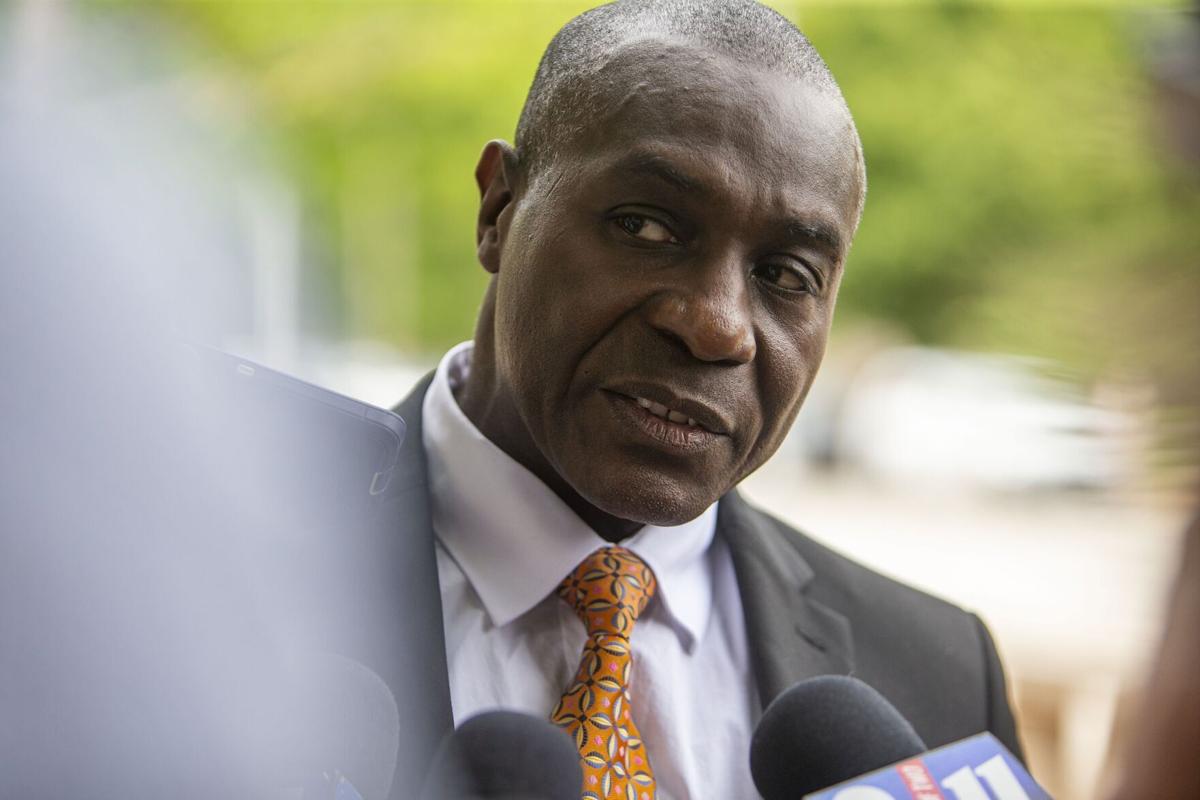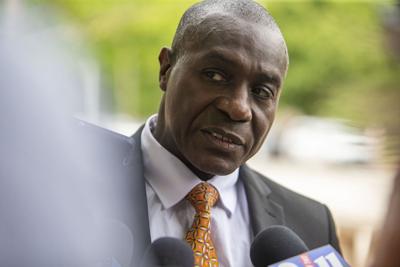Lewis Reed had his day in court.
But he didnÔÇÖt have anything to say.
Reed, the former president of the ├█ª┐┤½├¢ Board of Aldermen, wasnÔÇÖt in federal court to answer to the indictments filed last month accusing him of bribery. He has pleaded not guilty to those charges, and further action is likely months away.
But on Wednesday, one of ReedÔÇÖs actions while president of the board was at the center of a civil trial on the 12th floor of the Thomas F. Eagleton U.S. Courthouse. At issue is a simple question: Is it a First Amendment violation if a public official blocks a constituent on the Twitter account that they use for public business? ThatÔÇÖs what Reed ÔÇö or one of his employees ÔÇö did on Jan. 26, 2019, to Sarah Felts, a ├█ª┐┤½├¢ resident who is active in Democratic politics.
Felts filed a federal civil rights lawsuit against Reed with the help of the American Civil Liberties Union and the run by law professor Lisa Hoppenjans at Washington University.
People are also reading…
Her lawsuit is similar to others filed around Missouri and the country alleging that elected officials who use their Twitter accounts as a public forum canÔÇÖt block constituents from the debate, especially if their reason for blocking is that the official disagrees with the opinion expressed in a personÔÇÖs tweet.
In 2019, a Missouri judge ruled that a state lawmaker had violated the First Amendment by blocking a constituent ÔÇö in this case, her opponent for public office ÔÇö on Twitter. That ruling was later by the 8th Circuit Court of Appeals, which determined the state representative wasnÔÇÖt using her Twitter feed as a public forum.
The year before Felts filed her lawsuit, a federal judge and an appeals court had ruled that it was for former President Donald Trump to block followers on Twitter. That case was later dismissed on appeal to the U.S. Supreme Court as moot because Trump was no longer president and no longer had a Twitter account.
A similar dynamic has played out in this case, with Reed having resigned his post following his indictment. But the underlying First Amendment issues still deserved an airing in court, U.S. District Judge John A. Ross ruled earlier this month in allowing the trial to go forward.
So there was Felts taking the witness stand on Wednesday, explaining why she was upset that Reed had blocked her after she had asked him a question related to the debate over closing the cityÔÇÖs Medium Security Institution known as the ÔÇ£workhouse.ÔÇØ
ÔÇ£ItÔÇÖs really important to me to participate in my government as much as I can,ÔÇØ she said. Felts started a Twitter account in 2009, around the same time I met her. She was an intern in the Missouri Capitol then. Now sheÔÇÖs the digital strategy manager for Planned Parenthood of Missouri, where she frequently interacts with public officials (and journalists) on Twitter as part of her job.
So why did Reed block her?
Given a chance to explain, he took the Fifth. In answer to every question posed by ACLU attorney Tony Rothert, Reed, on the advice of his attorney in the criminal case, exercised his Fifth Amendment right to not incriminate himself, and he refused to answer questions.
That decision will throw a legal wrench into the judgeÔÇÖs deliberations because FeltsÔÇÖ attorneys told Ross they will now try to exclude ReedÔÇÖs depositions and affidavits from the evidence. Ross took the case under advisement Wednesday after a one-day trial.
Key to the judgeÔÇÖs ruling will be whether he believes Reed used his Twitter account in his official capacity. Evidence put on by FeltsÔÇÖ attorneys sought to establish that Reed used his Twitter feed as a public forum to discuss public policy.
The feed was linked to the cityÔÇÖs website, and it was sometimes managed by his legislative director, Mary Goodman, a city employee. Goodman suggested that at least some of the times when she accessed the account, she was doing so as a volunteer for ReedÔÇÖs campaign, not as a city employee. Those blurred lines, between official business and campaign business, are at the center of both federal cases involving Reed, one in the criminal court and this one, in civil court.
The city counselorÔÇÖs office, which is representing Reed in this case, has denied that Reed violated FeltsÔÇÖ free-speech rights by blocking her on Twitter. And that, Rothert says, is why the ruling from Ross is still important.
ÔÇ£Other city officials maintain official Twitter accounts like Mr. ReedÔÇÖs to communicate with constituents,ÔÇØ Rothert says. ÔÇ£Not resolving this case would invite those officials and their successors, as well as Mr. ReedÔÇÖs successors, to revert to Mr. ReedÔÇÖs unconstitutional policy of blocking users based on viewpoint.ÔÇØ











